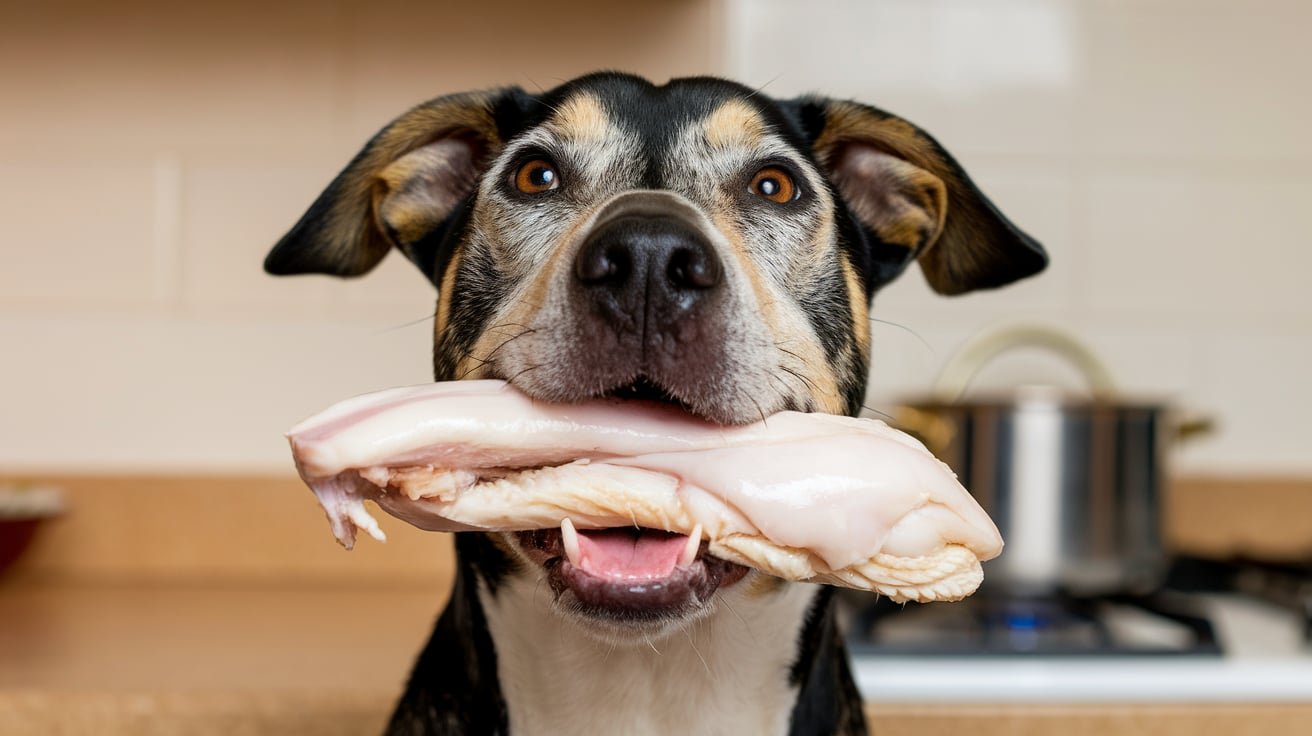Can Dogs Have Stevia? Everything You Need to Know
As a dog owner, it’s natural to want the best for your furry friend. With the rise in popularity of alternative sweeteners like stevia, you might find yourself wondering if it’s safe to share your stevia-sweetened treats with your dog. Can dogs have stevia? The short answer is yes, but with some important caveats. In this article, we’ll explore what stevia is, its potential effects on dogs, how to use it safely, and whether it’s a good idea to include it in your dog’s diet.
What Is Stevia?
Stevia is a natural sweetener derived from the leaves of the Stevia Candyleaf- plant. Unlike sugar, stevia is low in calories and doesn’t raise blood sugar levels, making it a popular choice for people looking to reduce their sugar intake. It’s often found in products like sugar-free gum, diet sodas, and a variety of other foods.
The fact that stevia is natural might make it seem like a safer alternative to artificial sweeteners like xylitol, which is highly toxic to dogs. But is stevia truly safe for your dog?
Is Stevia Safe for Dogs?
The good news is that stevia is generally safe for dogs when given in small amounts. Unlike xylitol, which can cause a rapid drop in blood sugar and lead to liver failure in dogs, stevia doesn’t have these dangerous side effects. However, that doesn’t mean you should start adding stevia to your dog’s diet regularly.
No Toxic Effects
Research suggests that stevia is non-toxic to dogs. It doesn’t cause a spike in blood sugar or insulin, making it a better option than sugar or some artificial sweeteners. However, because stevia is relatively new in the world of food products, there isn’t a wealth of long-term studies on its effects on dogs. This means that while it’s considered safe in small doses, it’s best to proceed with caution.
Potential Digestive Issues
While stevia might not be toxic, it could cause digestive upset if consumed in large quantities. Some dogs may experience diarrhea or stomach discomfort after eating products containing stevia. Therefore, it’s essential to monitor your dog for any signs of digestive distress if they consume stevia.
How to Safely Introduce Stevia to Your Dog’s Diet
If you’re considering using stevia in your dog’s treats or food, it’s important to do so safely. Here’s a step-by-step guide on how to introduce stevia to your dog’s diet:
Step 1: Start with Small Amounts
When introducing any new food or ingredient to your dog’s diet, it’s crucial to start with a small amount. This helps you gauge how your dog reacts. Try giving your dog a tiny piece of a stevia-sweetened treat and observe their reaction.
Step 2: Monitor for Adverse Reactions
After giving your dog a small amount of stevia, monitor them closely for any signs of digestive upset or allergic reactions. Look out for symptoms like vomiting, diarrhea, or excessive drooling. If you notice any of these signs, it’s best to avoid giving stevia to your dog in the future.
Step 3: Consult Your Veterinarian
Before incorporating stevia into your dog’s diet on a regular basis, it’s always a good idea to consult your veterinarian. They can provide personalized advice based on your dog’s health, weight, and dietary needs.
Step 4: Use Stevia Sparingly
Even though stevia is safe for dogs in small amounts, it should still be used sparingly. Dogs don’t need sweeteners in their diet, and too much of anything can lead to health issues. Consider stevia an occasional treat rather than a regular part of your dog’s diet.
Anecdote: How Stevia Helped My Dog Enjoy Treats Again
I remember when my dog, Max, was diagnosed with diabetes. I had to make significant changes to his diet, including cutting out all sugary treats. Max had a sweet tooth, and he missed his snacks terribly. That’s when I discovered stevia. I decided to try baking homemade treats using stevia instead of sugar. To my delight, Max loved them, and I felt good knowing that I was giving him a safe, sugar-free alternative. Since then, stevia-sweetened treats have become a special occasion indulgence for Max, allowing him to enjoy a bit of sweetness without compromising his health.
Potential Risks of Feeding Stevia to Dogs
While stevia is generally safe, there are a few potential risks to be aware of:
Overconsumption
If a dog consumes too much stevia, it could lead to gastrointestinal issues such as gas, bloating, and diarrhea. This is more likely to occur if a dog gets into a large quantity of stevia-sweetened products, so always store these items out of your dog’s reach.
Allergic Reactions
Although rare, some dogs may have an allergic reaction to stevia. Symptoms of an allergic reaction might include itching, hives, or swelling. If you suspect your dog is having an allergic reaction, contact your veterinarian immediately.
Hidden Ingredients
Some products labeled as “stevia” may contain other ingredients that could be harmful to dogs. Always read labels carefully to ensure that the product doesn’t contain xylitol, which is extremely toxic to dogs. When in doubt, choose products that list pure stevia extract as the only sweetener.
Alternatives to Stevia for Dogs
If you’re unsure about using stevia or if your dog doesn’t tolerate it well, there are other natural sweeteners that you can consider:
- Honey: While higher in calories, honey is a natural sweetener that can be used in small amounts as a treat.
- Applesauce: Unsweetened applesauce can add a bit of natural sweetness to homemade dog treats.
- Pumpkin: Pumpkin puree is another dog-friendly option that adds sweetness and is also great for digestion.
These alternatives can provide natural sweetness without the potential risks associated with some artificial sweeteners.
When to Avoid Stevia
While stevia is generally safe, there are situations where you might want to avoid it altogether:
- If Your Dog Has a Sensitive Stomach: Dogs with sensitive stomachs may have difficulty digesting stevia, leading to discomfort.
- If Your Dog Has a Known Allergy: If your dog has shown signs of an allergic reaction to stevia in the past, it’s best to avoid it.
In these cases, it’s wise to stick to more traditional dog treats that don’t require sweeteners.
Conclusion: Is Stevia Safe for Dogs?
In conclusion, dogs can have stevia in small amounts, and it can be a safe alternative to sugar and other harmful sweeteners. However, it’s important to use it sparingly and monitor your dog for any adverse reactions. As with any new food or ingredient, consulting your veterinarian before adding stevia to your dog’s diet is always a good practice.
By following these guidelines, you can confidently treat your dog with stevia-sweetened snacks, knowing that you’re making a safe and informed choice.




I love the depth of your articles.